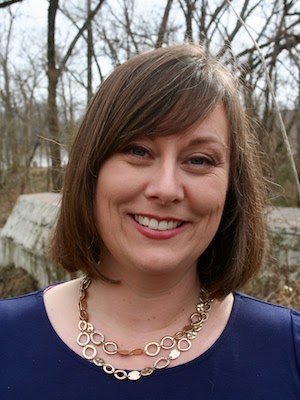We Need To Talk: Youth Ministry Symposium on March 18

What does sexuality have to do with faith? Plenty, says Leslie A. Choplin who is the keynote speaker at the fifth annual CDSP Youth Ministry Symposium on March 18. And the church needs to talk about it.
“Young adults and teenagers today are demanding more and better sexuality education,” says Choplin, co-author of “These Are Our Bodies: Talking Faith and Sexuality at Church and at Home,” part of a new curriculum from Church Publishing. “The Christian church has remained quiet and fearful for too long on such an important topic. …We cannot separate our sexuality from who we are; we cannot separate our body and soul.”
Choplin has spent more than a decade as a director of Christian education, sexual misconduct prevention trainer, facilitator, and speaker in Episcopal congregations across the United States. She is currently the program assistant in the Ph.D. program at Virginia Commonwealth University School of Social Work.
“Issues of sexuality are used by political and some religious cultures to divide people,” Choplin says. “I believe we are called to open the conversation about sexuality, our values, morals, and ethics to help unify people and ensure there is space at the table for everyone. This does not mean that we must all agree, simply that we make space and keep ourselves open.”
Sexuality is a gift from God, Choplin says, and should be treated as such.
“God said that all of God’s creation is very good. Eroticism, creativity, and desire are part of the beauty of the world,” she says. “The desire to be in the sun, to feel its sensual energy, and hear the peaceful crashing of ocean waves, the warm touch of a friend, the snuggles of a baby. Each of us draws power and energy from God’s creation. The world is fragile and needs us to love and care for it, honoring its sacredness.
“In many ways I think this mirrors how we should explore sexuality and faith,” Choplin says. “Our bodies are sacred and should be treated with honor. People still struggle to understand consent and power in sexual relationships. People struggle with power over each other for control of land and resources. My hope is that the more we are able to learn to live in harmony with each other, the more we will learn to live in harmony with the earth, and vice versa.”
In 2014, Choplin was one of several people approached by Church Publishing Incorporated to help develop a sexuality curriculum. The Episcopal Church’s publishing house was fielding requests from across the church, especially for a middle school curriculum on sexuality. Choplin and her co-author, Jenny Beaumont, were part of a group convened by Church Publishing editors to brainstorm possibilities.
The new curriculum, being published in stages, provides church leaders and parents with accurate information and language that can help them create a safe space for talking about human sexuality in light of both Christian faith and progressive, inclusive values.
The program’s foundation book, written by Choplin and Beaumont is available now. It is especially recommended for facilitators, small group leaders, and parents. The middle school age program module—written by Beaumont and Abbi Long—also is available. It includes ten developmentally appropriate, faith-based sessions, a guide for leaders and books for both participants and parents.
Modules for use with children ages three to 11, high school students, young adults and adults are under development.
“Sometimes you’ll hear from people who say, ‘Oh, the school will cover that information, so I don’t need to worry about that.’ I disagree,” Choplin says. “Our parents are our primary sex educators, so equipping them to convey that information in a positive way is very important. … We’re trying to provide accurate information that allows us to say there is more to this than ‘this is the mechanics’ and ‘this is the plumbing,’ because there’s so much more about our sexuality.”
And while Choplin’s keynote address at CDSP will focus on youth, she says young people aren’t the only ones who can benefit from discussions about sexuality.
“We’re not just talking about the health and well-being and spiritual life of teenagers,” Choplin says. “We need to be able to recognize that there is an intersection in our faith and our sexuality that is lifelong and needs to be addressed in some way.
“I think God wants us to enjoy sex and our sexuality in all its forms. I imagine that God is saddened by our continued struggles to embrace one another in kindness and love. Through programs like “These Are Our Bodies,” we can work toward embracing the light of Christ in each other.”


